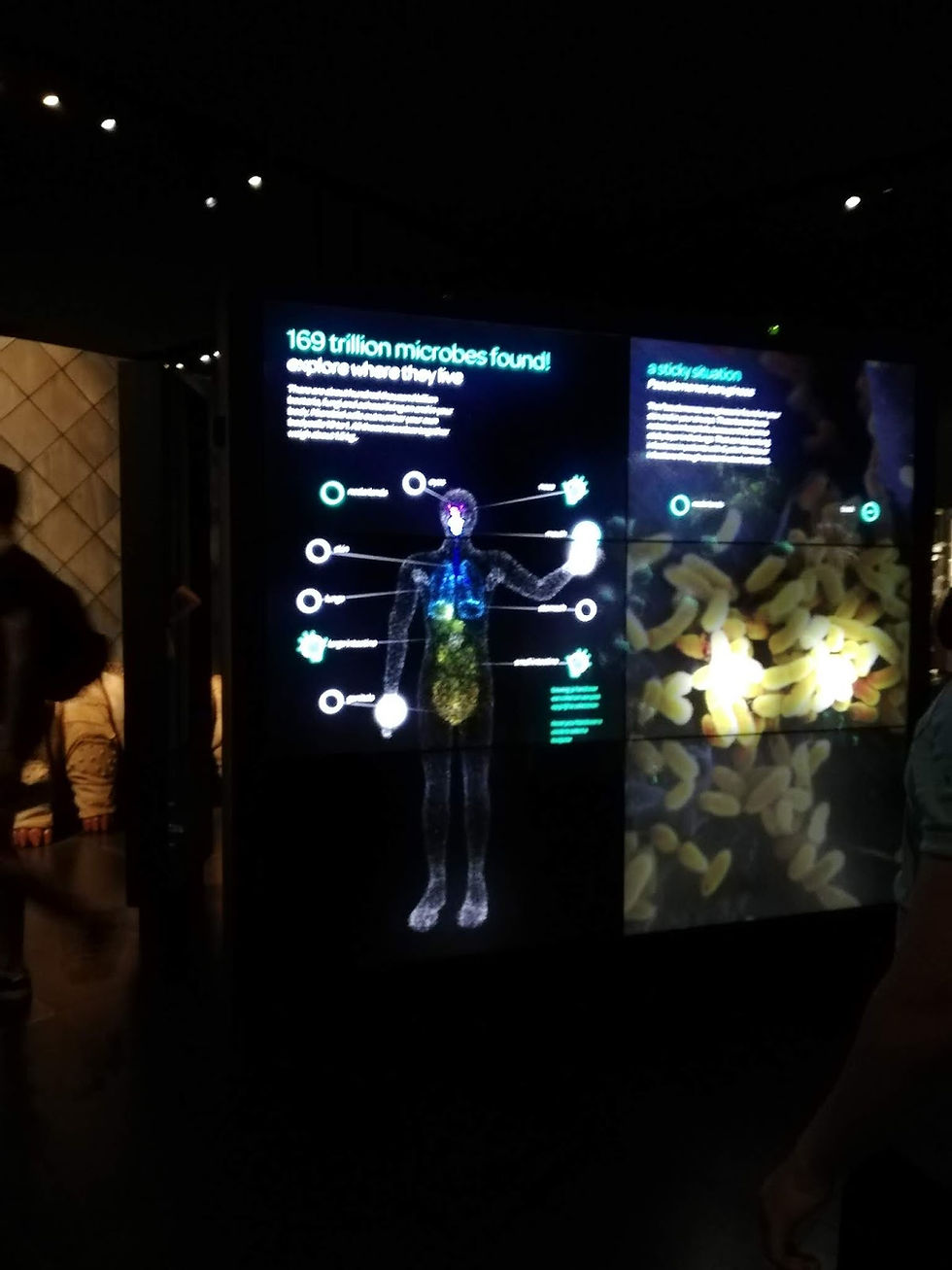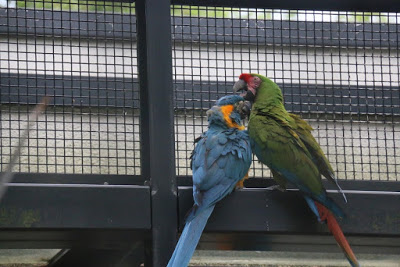A Trip to the Artis Zoo & Micropia in Amsterdam...
- Kruthi Muthigi
- Aug 8, 2019
- 4 min read
Updated: Sep 6, 2019
Amsterdam.
A city filled with surprises, adventure, and of course, Cannabis! I have visited the city only twice, yet fell in love with it while walking the streets in awe. Thanks to my good friend and photographer Jayasri!
The capital city of Holland has so many exciting places and sights to visit and explore.
The Natura Artis Magistra (Latin for "Nature is the teacher of the arts") being one of them.
Artis is the oldest zoo in the Netherlands and one of the oldest zoos of mainland Europe.
There is also an aquarium, planetarium, and a butterfly sanctum located within the grounds, and a very interesting exhibit of microbes called the Micropia.
There are tickets available for each individual area, or you can purchase a package including tickets to all of the places.
We managed to cover all of the areas in 4-5 hours because we skipped the insects and flashed through the reptiles (Since they creep us out), while my husband quickly took pictures. Here is a briefing though it all!
PART ONE:
Micropia-A cringed, yet a fascinating experience of a lifetime indeed!

The Microbe map- There is a glowing tree of life at the entrance of the exhibit. A selection of 1500 species where the data has been collected from the NCBI.
Lit up in UV light, are only visible by microscope whereas the non-illuminated branches (ie. mammals in the bottom right corner) are not.
From your toothbrush to the depths of your gorgeous eyelashes, there lie tiny and live microorganisms unseen and unknown.
It’s all shown here open and exposed from hiding.
We highly advise you to visit the place after a meal following a short break. The exhibits are truly fascinating, but can really kill appetite for you to attempt a meal afterward.
But trust me, you shouldn't let that keep you from going there at all!
This place is the show and tell of microbiology that'll have you mesmerized, surprised, maybe even shocked!
The Body Scanner- Peek-a-boo! I found you!
You’d be surprised to know what every inch of your own body can hide from your naked eye.
If you're willing to know, then step right up at the body scanner to find out! Sweaty palms? Oily skin? You name it! Every possible microbe that has made a habitat for itself on you and that exist based on the conditions of the environment as well!
One-step and a single flash scan calculate the number of organisms hiding on your body.

Through the movement of your hands, you can explore each part of your body and learn about things you never will expect!
This is the result of my husband's body scan.
Home of 169 trillion microbes! Showers and personal hygiene can never be the same again for him after seeing that on display!
(OCD running down the drain and brain going into a seizure...just kidding!)
Collecting your own Microbes

Another interesting feature of this place, is the part where you can collect microbes from specific areas located at each exhibit provided on a stamp card, and at the end of the tour, you place your card on a scanner and it displays each of the microbes you collected on a huge screen.
How cool is that! Of course, they're not live microbes but, knowing what you've seen and collected throughout the exhibit on a huge screen, would be quite fascinating wouldn't it?

This is an actual human digestive system preserved and displayed in the Micropia, with labels that explain all types of microbes that exist, and their possible roles in our digestion.
PART TWO:
The Artis Zoo- An Unforgettable expedition.
The oldest zoo of Holland, located in central Amsterdam, is truly a great way to give a break to your body and mind from the technology fever and addiction to enjoy the beautiful, and interesting creatures existing on the planet.
You shouldn't miss this at all, if you happen to pay a visit to the city!
The zoo includes separate exhibits specifically designed to suit the environmental conditions of the creatures in their natural habitat.
Which makes the zoo more interesting, rather than just mechanically examining creatures one after another.
Reptiles, Insects, Mammals, Aquariums, Mammals, and even a sanctum where butterflies fly freely as you walk through a garden!
Here are some of the highlights of the exhibits we have seen.

Did you know this about "Chameleons"?
Special color pigment cells under the skin called chromatophores allow some chameleon species to change their skin color, creating combined patterns of pink, blue, red, orange, green, black, brown, yellow and purple.
Chameleons change color for camouflage but this is not always the main reason. Some show darker colors when angry, or when trying to scare others.
Males show light multi-colored patterns when vying for female attention. Desert varieties change to black when it's cooler to absorb heat, then a light grey to reflect heat.

Did you know?
The Komodo Dragon is the largest lizard. It can reach 10 feet in length and weigh up to 200 pounds.
They are carnivores (meat-eaters) who like to feed on pigs, deer, snakes, fish and water buffaloes.
Adult Komodo dragons are cannibals (eat their own species) and 10% of their diet is made of newly hatched Komodo dragons.

Did you know?
Unlike many other snake species, pythons don’t produce venom - they are non-venomous snakes. Pythons are constrictors. They kill their prey by squeezing them until they stop breathing.



We even happened to find some fish resembling the characters of "Finding Nemo", and since I am a die-hard Pixar fan, I couldn't help but gush over it!
Fun facts about "Starfish"!
The average lifespan of a sea star is 35 years.
Starfish have no blood and no brain!
Since they don’t have a backbone, starfish, aren't really fish belong to a group of species called invertebrates, which also includes urchins and sponges.

The Butterfly Sanctum is probably the best you can see throughout the exhibits. Just imagine walking through an indoor garden with various butterflies flying around you.
Being able to let them land on your hand or even sneak on your back!
Various areas of the sanctum contain plates of fruit for the butterflies to feast on. Its such a beautiful experience to be surrounded by free-flying butterflies in a garden!

Conclusion
This amazing zoo is different from the usual zoo's you may find in your locality. completely worth the time, energy, and money! A must-see for those dropping by Amsterdam.
Picture Credits: My Husband,Rahul Rao Dannayak & Jayasri
Click here to visit Jayasri's Website for more insight on her amazing photography diary in Amsterdam!
Copyrights Reserved ©







































Comentarios